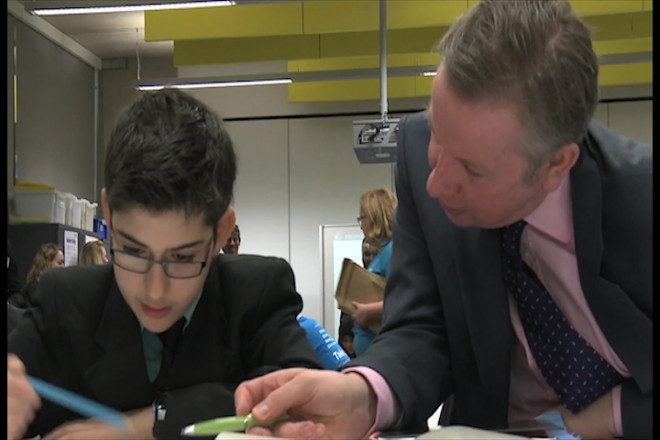Trojan Horse Scandal Raises Deep Issues Over Michael Gove's Schools Policy

The fallout from the so-called Trojan Horse affair has raised some pressing questions over what constitutes "British values", now apparently to be taught in all schools, and to what extent there is any attempt to impose an extreme Islamic culture in some classrooms.
It has now locked education secretary Michael Gove into yet another row, this time with Ofsted, over who said or did what and when, while the prime minister attempts to define British values and ministers continue to try and duck any responsibility for the glaring failures.
But there is a far bigger and deeper problem highlighted by the affair which should prompt a radical re-think of education policy across the board.
The persistent desire, dating back to the previous Labour government, to "free" schools up from local authority oversight, to effectively scrap an agreed national curriculum, to spread parental control and "localism" and even encourage a growth in faith schools must surely deserve fresh examination.
The single issue that appears to drive all these trends in education policy is the imperative that the state should get out of the business of running local education and hand increasing power over to head teachers who have, in many cases, effectively become chief executives more concerned with the administration of the institution than education.

Currently there is a confusion over what is on offer from different types of educational institutions including academies, free schools, old-style local education authority schools, specialist schools, faith schools and not to forget private schools, the sort Gove has said he wants all state schools to emulate.
But while all parties now agree that headteachers should be given greater freedom to run their schools, there is no consensus over who should then be overseeing those heads, or what universal standards might be imposed over issues such as teacher employment and conditions.
Similarly there is no agreement on what should be taught in every school. Although Michael Gove seems to add and subtract things on an ad hoc basis, with British values marking the latest addition and classic US authors like Steinbeck recently removed.
The free schools experiment is far from a runaway success, and the evidence they have offered school places in struggling, disadvantaged areas is not there; while there are clear signs that school places are being created in areas without a shortage of them.
Meanwhile, Ofsted has been given the task of overseeing more and more schools and the burden is clearly far too great for effective scrutiny. So much falls to Whitehall, a distant supervisor with limited time and resources, and Gove himself. Precisely the opposite of the much-trumpeted "localism".
It is no surprise, then, that issues such as alleged Muslim extremism, whether accurate or not – and the charge remains unproven – appear to come out of the blue amid claims they have either been missed entirely or simply ignored.
And the reaction is the predictable rush into vague, simplistic, fire-fighting answers when what may be needed is a far more wide-ranging review of the over-arching ideology driving education policy.
For a start, calls from Labour for local bodies charged with overseeing schools might be a way forward. But isn't that what the LEAs used to do?
In any case, any radical re-appraisal might require an admission that the current ideologically-driven approach has failed. And that won't do.
© Copyright IBTimes 2025. All rights reserved.






















